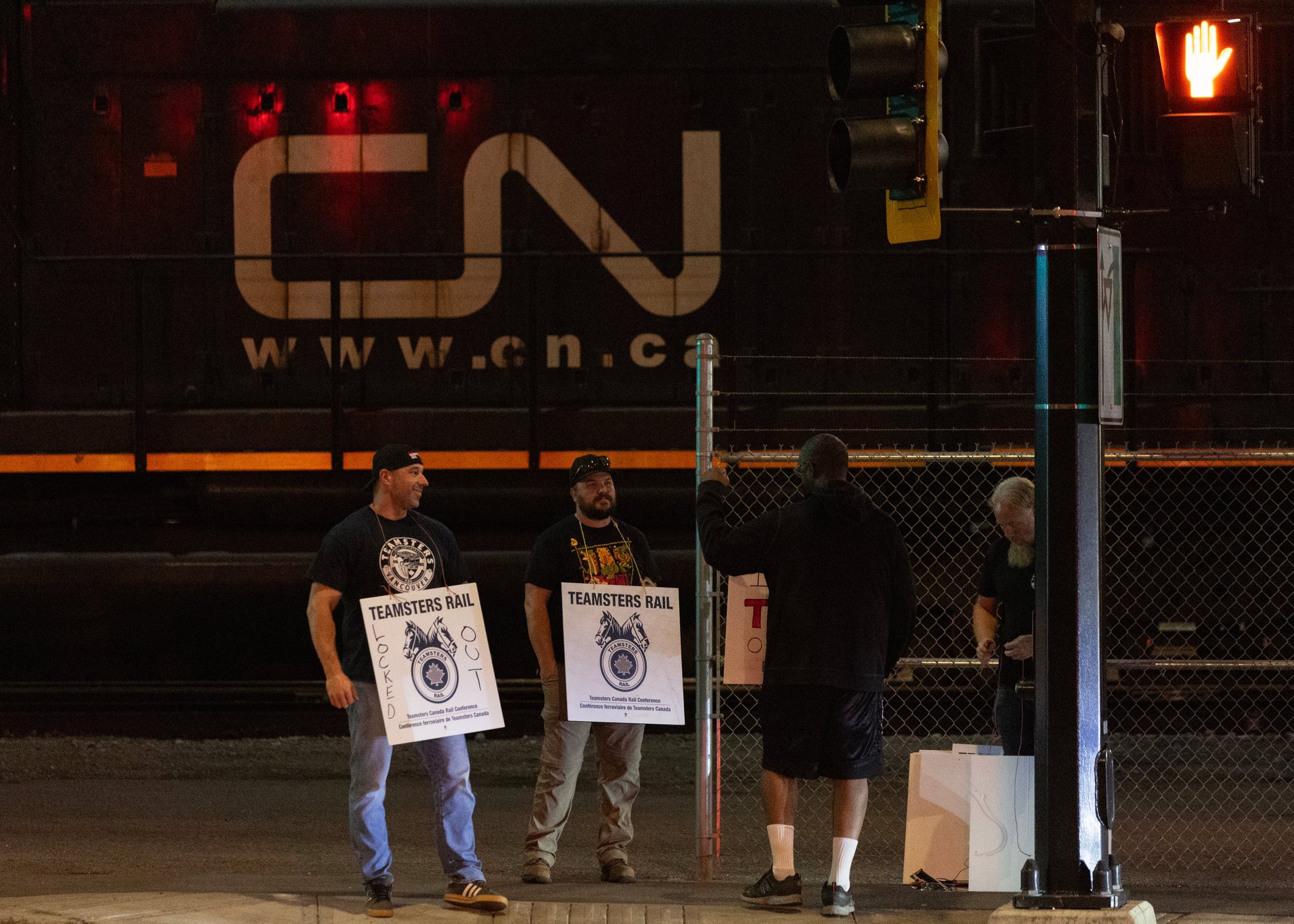Canada's major freight railroads have shut down, threatening economic disruption in the U.S.
Canadian freight railroads transport about $380 billion worth of goods each year

Canada’s two major freight railroads have shut down operations and locked out 9,000 members of the Teamsters union after almost a year of negotiations ended without a labor deal.
Suggested Reading
The railroad operators — Canadian National (CNI) (CN) and Canadian Pacific Kansas City Southern (CP) (CPKC) — help move some of the $380 billion worth of goods transported by Canadian freight every year, according to the Railway Association of Canada. Freight railroads are also responsible for half of Canada’s exports, the majority of which go to the U.S.
Related Content
Almost a third of the freight handled by the companies crosses the U.S.-Canadian border and could disrupt industries across the U.S. if the shutdown is prolonged, affecting the export of everything from grains to timber. Each day, the flow of some $730 million in goods stoppage could be affected, according to Canada’s Chamber of Commerce.
“CPKC is acting to protect Canada’s supply chains, and all stakeholders, from further uncertainty and the more widespread disruption that would be created should this dispute drag out” to the fall, the company said in a statement posted early Thursday morning.
Both companies said they locked out the Teamsters just after midnight. It’s the first time that both major railroads have shut down at the same time due to a labor issue. The last time a work stoppage occurred was in 2022 when Canada Pacific workers went on strike for 60 hours.
Unlike that labor stoppage, this time the management is telling workers not to come in, rather than the workers choosing to picket. The companies have been negotiating new labor contracts with the Teamsters union over the past nine months, with each side blaming the other for causing Thursday’s disruptions.
The companies have said the Teamsters made unreasonable demands and failed to show urgency in negotiations. The Teamsters contend that its proposals haven’t been taken seriously and protest the companies’ “push to weaken protections” around rest periods and scheduling. The railroads deny that the changes they want would increase safety risks.
“The railroads don’t care about farmers, small businesses, supply chains, or their own employees,” Teamsters Canada Rail Conference President Paul Boucher said in a statement. “Their sole focus is boosting their bottom line, even if it means jeopardizing the entire economy.”
